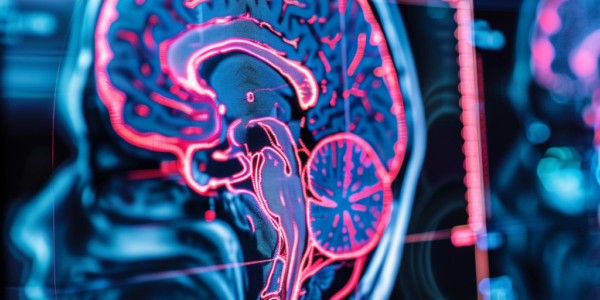Study Shows Vaping Linked to Poor Sleep Quality and Mental Health Issues in Young Adults
University of Surrey researchers conducted a study on the impact of vaping on the sleep quality and mental health of young adults, revealing a significant decline in sleep quality among vape users compared to non-vapers. The study also highlighted the potential link between vaping, feelings of loneliness, and heightened anxiety levels, emphasizing the need for a deeper understanding of the effects of vaping on young individuals.
Stanford Medicine Study Reveals AI Can Distinguish Between Male and Female Brains with 90% Accuracy
Stanford Medicine researchers have developed an AI deep learning model that can distinguish between male and female brains with over 90% accuracy, shedding light on the impact of gender on brain development, aging, and neuropsychiatric diseases. The study’s findings have significant implications for developing personalized sex-specific biomarkers in psychiatric and neurological disorders, as well as innovative AI-based computational tools for future research.
The Impact of Social Media on Male Body Image
Social media’s impact on men and teenage boys’ body image is concerning, leading to ‘bigorexia’ and muscle dysmorphia. Licensed clinical psychologist Joseph Trunzo highlights the pressure created by social media and urges mindfulness in exercise. Parents are encouraged to monitor their children’s social media exposure to combat unrealistic body standards.
Structured Dance Found to be Equal or More Beneficial than Other Physical Exercise for Psychological and Cognitive Outcomes
New research has found that structured dance is equal or more beneficial than other types of physical exercise for improving a range of psychological and cognitive outcomes. Dr Alycia Fong Yang’s research sheds light on the positive impact of structured dance on mental health, providing valuable information for individuals seeking to enhance their mental well-being through physical activities.
Health Impacts of Remote Work Revealed in Recent Review of Academic Literature
A recent review of academic literature has revealed both the positive and negative health impacts associated with remote work. Remote workers experience benefits such as improved eating habits, reduced stress, and lower blood pressure, but also face downsides including increased snacking, higher alcohol and tobacco consumption, and weight gain. The study found that remote workers are less likely to take sick leave, often work longer hours, and frequently work during evenings and weekends. The findings emphasize the importance of acknowledging the complexities of remote work and the need to support and optimize the home working environment for the well-being of employees.
Workplace Stress and the Impact on Health
Workplace stress and burnout can have a significant impact on one’s health, as seen in the case of solicitor Lara Cox. Her struggle with work-related stress led to a dependency on strong painkillers, highlighting the growing concern of burnout in today’s workforce. The Wales TUC has advocated for flexible working arrangements to address these challenges and prioritize work-life balance, reflecting the increasing awareness of the detrimental effects of prolonged workplace stress.
Study Reveals Impact of Long COVID on Exercise
A recent study has revealed that long COVID can have a significant impact on a person’s ability to exercise, beyond just causing chronic fatigue. Dr. Salman Bhai, the director of the neuromuscular center at the Institute for Exercise and Environmental Medicine at Texas Health Dallas, shared insights on how individuals with long COVID can still maintain an exercise routine. Dr. Bhai emphasized the importance of developing patient-specific exercise plans and goals in collaboration with a multidisciplinary team, tailored to individual needs and focusing on gradual progression over 6 to 12 months. The approach to exercise for individuals with long COVID involves gently pushing oneself within the tailored plan, without trying to catch up to previous levels of fitness. Dr. Bhai’s insights provide hope for individuals dealing with long COVID, offering a structured and patient-specific approach to gradually reintroducing physical activity and improving overall well-being.
Science-Backed Ways to Improve Your Mood
Looking for a pick-me-up? One of the simplest science-backed ways to improve your mood is to get outside in nature. Spending time in nature can help reduce stress, improve mood, and keep you healthy. Additionally, listening to birds has been shown to have a positive effect on mood. Find out more about these science-backed self-care tips and how they can help improve your mental health.
Study Suggests Dance May Be As Effective As Other Forms of Exercise in Improving Mental Health
A new study suggests that dance may be as effective, if not more so, than other forms of physical activity in improving emotional well-being, depression, social cognition, and some aspects of memory. Lead author Dr. Alycia Fong Yan observed that dance can be a powerful form of exercise, essentially ‘exercise in disguise’. The study compared the psychological and cognitive health outcomes of structured dance classes with other physical activities, and found that dance class participants experienced similar or even superior improvements in quality of life, anxiety reduction, and depressive symptoms compared to other physical activity interventions.
Teenagers and Sleep: The Impact on Mental Health
Learn about the impact of sleep on teenagers’ mental health and the reasons why many teens aren’t getting enough sleep. From stress to busy schedules, find out what’s keeping teenagers from getting the recommended 8 to 10 hours of sleep per night.










